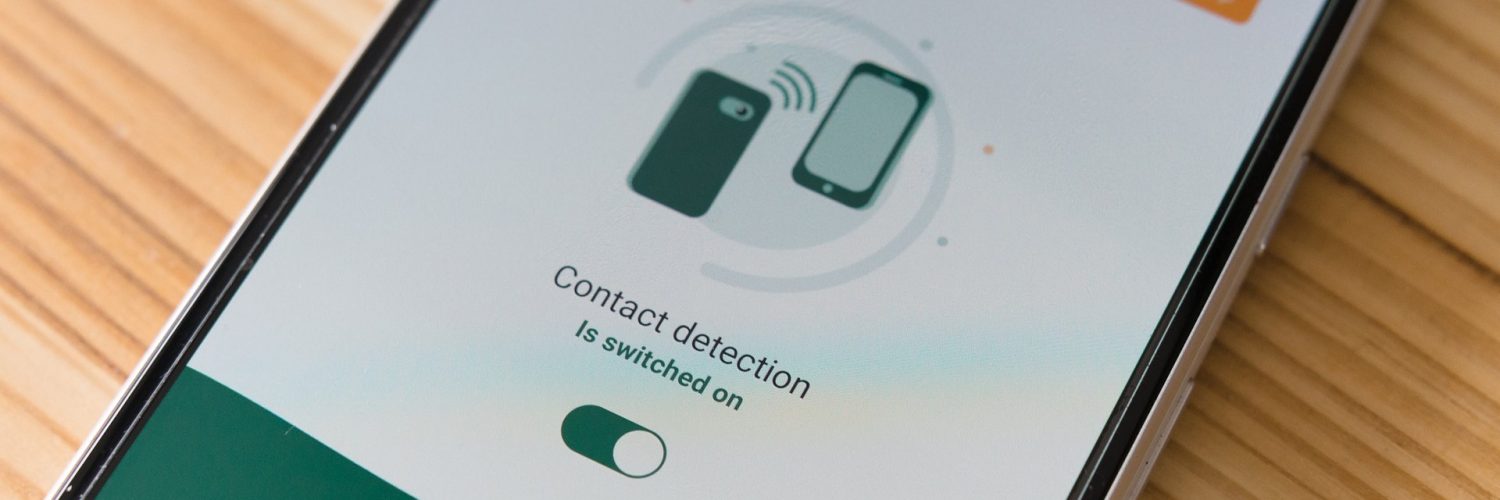Contact-tracing apps are a crucial tool in the fight against Covid-19. Thanks to tech giants such as Apple and Google, they are also easy to develop.
The hyperconnection of cities, people, companies and systems is the basis for the globalized society in which we live. With the advent of the Internet of things, practically any device forms part of a vast, interrelated system. Mobility is the defining feature of our economy – whether its the movement of people, goods, capital and data. However, we also face a paradox as humans. At the present time, a lack of personal contact with others keeps us safe from the virus – at least until a vaccine is released.
In hyper-connected and hyper-populated communities, the Covid-19 virus moves like a fish in the water. The globalized society that we live in is undoubtedly the perfect breeding ground for the spread of contagious diseases. However, while the hyperconnection of people spreads the virus, the hyperconnection of our cell phones can represent a great ally in the fight against it. This ally was not around during the great pandemics of the 20th century, nor was it exploited to combat H1N1 in 2009.
Controlling Contagion
Cell phone contact-tracing can be an effective complementary mechanism in controlling the spread of the Covid-19. Today, if a person tests positive, health personnel will try to track which people they have had contact with in recent days. Those people are then tested for symptoms. The effectiveness of this system is limited, as it depends on memory, will and familiarity with everyone who came into contact with the infected individual.
If a person travels by bus on a daily basis, it will be impossible for him or her to identify all the passengers he or she came into contact with in a given week. But if you install a contact-tracing app on your cell phone, and a significant majority of passengers also install it, their cell phones can automatically exchange – via Bluetooth – codes that prove they were in contact while travelling. These codes are stored in their phones. In the event that any of the passengers tests positive, the others will automatically receive an alert on their phone warning them that they have been in contact with an unnamed Covid-19 carrier. These alerts can even be adjusted, according to the degree of proximity and time of exposure.
In many countries, the use of these tracing apps has been ineffective because they are not installed by a significant number of citizens. In order to be effective, they must be used by at least 15% of the population. In other countries, such apps have generated questions about the use of personal data. To avoid such privacy fears, contact tracing must be completely voluntary. Authoritarian regimes such as China have mandated the use of a tracing app. In so doing, they have raised serious concerns about civil liberties.
In Germany, the Corona-warn-app was installed by 20% of the population within a month of its launch, although it initially presented some technical problems. In India, 127 million inhabitants installed the official app in just over a month. However, such tracing apps have proven most effective in smaller countries. In Iceland, 40% of the population uses the app, a similar percentage to that of Ireland.
Learning From Others’ Mistakes
At this point in the pandemic, one can learn from the mistakes that were made in other countries in the application of this technology. In addition, we can also learn from the successes of those places where it has worked, which have several common features:
1) A strict control of privacy, through the adoption of a decentralized model made available by Google and Apple, in which information is stored directly on the person’s cell phone and is not transmitted to a central authority.
2) Free access to the source code of the tracing app, which makes it possible to check whether third parties have access to it.
3) A public campaign on the importance and benefits of its use.
The pandemic is not going to end soon. We must not only get used to living with the virus, but we must also use all the tools we can to combat its negative impacts on society and the economy. Waiting for a vaccine to save us is too great a gamble. Manually tracing contacts is like controlling the virus with an abacus while having the option to use a super computer. Technology is the best tool to battle for a better future.










Add comment